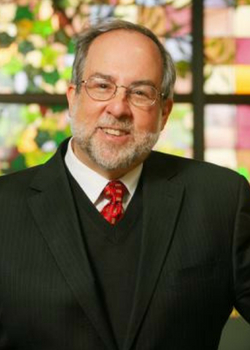I love Jewish books. I attribute this to my fourth grade Hebrew School teacher who regularly banished me to the synagogue library. I wasn't a bad kid. But after a full day of "regular school," Hebrew School provided the ideal environment to meet and mix. So after being scolded three times: "Sheket, Yitzchak, Sheket!" I would find myself in the synagogue library...where I learned to love Jewish books.
Once, the teacher caught me on the way out the door.
"Yitzhak, go to the Library!" she shouted, "But I want you to do something there...write a book report."
"Ok. A book report. I can do that. Any particular book?"
"Yes," she smiled with conspiratorial glee, "write a book report....about the Bible."
"The Bible?!! How can I write a book report about the Bible?!"
"It's a book, right? Then you can write a book report about it."
So off to the Library I went. I found a copy of the Torah, took a piece of paper and a pencil and began my book report.
Title - The Torah. So far, so good. Author - uh oh. Just write, Unknown. Publisher - Jewish Publication Society. Describe the book: What is the setting? Who are the main characters? What is the plot? And finally, the all-important, Would you recommend this book to your friends?
The Setting, the Main Characters, especially, the Plot. I've thought about these questions a great deal since the fourth grade. Does the Bible have setting, character, plot? Does the Bible, have a narrative arc? Does it tell a story? We don't typically read the Bible that way. We read for individual nuggets of wisdom. We read a Biblical story, or a weekly portion, or a particular law. We don't read the Bible for the totality of its narrative. What is the Bible's story?
The Bible is a drama in three acts:
Act One. The Bible's central character is a God who dreams of a world of blessing. God creates a world and it is good. God wants a partner to share and care for this world. So God creates the human being. And God creates a remarkable place for this new human creature, a Garden in Eden. The Garden is the epitome of God's dreams -- a place of perfection, oneness, peace. But in this place of perfection, the human is not content. Something is missing. This human creature, God discovers, is unique - the human being craves freedom. Unlike every other creature, the character of the human being is not fixed by nature. To be human is to be a self-creating being.
To achieve their humanity, man and woman disobey the God who created them. Bewildered and disappointed, God expels them from the Garden.
Outside the Garden, humans turn further away from God's dream, descending from disobedience to murder and violence until God gives up on the world altogether and decides to destroy it all. Just then, God's eye catches sight of one man, a man with moral potential. God finds Noah, ish tzadik. God decides to start again.
Act Two. If God couldn't create a suitable partner, perhaps God can choose one - choose a man committed to sharing the divine dream. But Noah disappoints God as well, and his children turn from God, filling the world with corruption, and again God is disappointed. With all God's power, God couldn't create a partner, God couldn't choose a partner. Perhaps, God can teach a man to share the divine dream.
Act Three.
The LORD said to Abram, "Go forth from your native land and from your father's house to the land that I will show you.
²I will make of you a great nation, and I will bless you; I will make your name great.
Be a blessing!
³I will bless those who bless you, and curse those who curse you;
And blessed in you will be all the families of the earth."
God's curriculum: Take a man and remove him from his culture. Strip him of his identity, his power, position, patrimony. Remake him into a vessel of divine blessing. Be a blessing. Bring blessing to all the families of the earth. God doesn't say: "Be a blessing to Me." God doesn't demand Abram's reverence, worship or submission. God invites Abram: Be my partner. Share blessing with all the families of humanity.
Is this charge to Abram an expression of Jewish particularism or Jewish universalism? The answer is yes to both, because Jewish identity defies those categories. From the beginning of our collective existence we were charged to bring blessing to the world. Our identity is distinctive - we are a people, but a people described by our obligation to the "families of the earth." To be a Jew is to embrace both. The project begins with Abram and Sarah. It has yet to see its fulfillment.
Would you recommend this book to your friends?
Shabbat Shalom.

